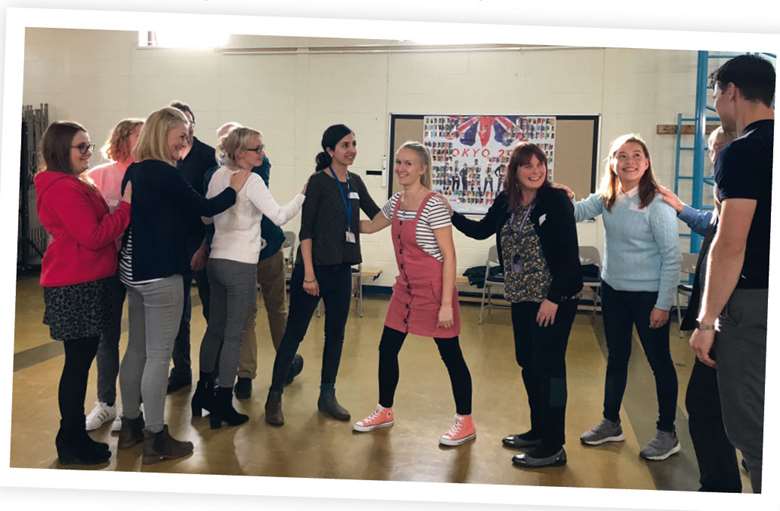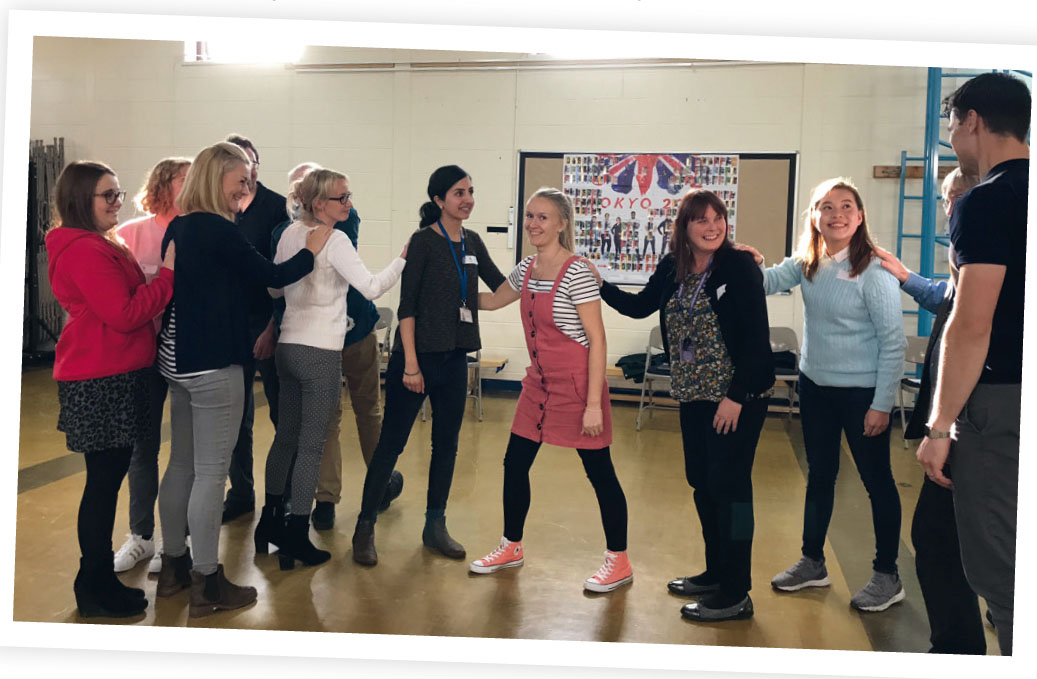Of primary importance
Geoff Readman
Saturday, February 1, 2020
Geoff Readman details National Drama's mission to embed drama in primary education

SARAH WESTAWAY, HEAD OF ARTS DEVELOPMENT, ARTFORMS, LEEDS
Drama education is a collaborative artform that involves children in planning, performing and evaluating as they explore significant social and fictional contexts in ways that enhance personal self-esteem.
However, in today's primary schools, drama still does not receive the curriculum recognition that it warrants. It is largely defined as pedagogy within English or PSHE or simply defined by the school production. It is the decline of drama in primary schools that National Drama (ND)'s one-year project, entitled the Primary Initiative, seeks to address.
Mission and aims
The ND Executive was very clear about the project's major aims. To:
- Stimulate and rejuvenate interest in primary drama teaching and
- Create a network of practitioners who wish to develop their drama specialist skills in mentoring and supporting primary teachers.
They recognised that, if they were to succeed, they would need to take full account of three major contextual factors facing schools:
- Finances for supply cover and fees
- The increasing difficulties faced by teachers in attending CPD and
- The current lack of knowledge and understanding concerning the learning potential of drama.
Thus, the project design was as concise and accessible as possible. It would comprise a half-day with a minimal fee of £30.00 per attendee. It would take place from 1.30 – 4.30pm and teachers would experience a whole-group workshop, followed by an optional in-depth workshop for either KS1 or KS2.
ND guaranteed that each half-day was facilitated by a nationally renowned practitioner in primary education. The specific aims of the half day are:
- To introduce drama strategies to teachers who may be new to drama
- To create opportunities for teachers to experience drama as a pedagogy
- To highlight the learning potential of teacher and pupils working in role to explore a negotiated context
- To engage teachers in a drama experience that deepens their knowledge of drama skills, conventions and form.
I approached schools that were known to encourage curriculum drama and who I thought might be willing to host such a course. In return, those schools could register their own teachers free of charge. Recruitment has not proved to be easy in these difficult times. Accessing appropriate email contact lists was hard and we also faced the problem of academy chains refusing to advertise CPD events that were provided by professionals outside their network.
‘The strategies have enabled me to make my lessons more accessible for all the children in my class.’ –Teacher who attended the Primary Initiative CPD
The CPD offering
The afternoon begins with teachers identifying one question that they want to learn more about during the afternoon. These questions have varied from ‘How do I start?’ to ‘How do we assess drama?’ The questions are recorded and re-visited in the final, plenary discussion.
Next, the whole group, facilitators included, engage in a short exemplary workshop which anticipates some of the constraints which prevent many primary teachers from attempting drama and begins with the following question: ‘What learning is possible if we have only 30 minutes available?’
The chosen subject matter for the introduction is a familiar PHSE theme – ‘Friendship’. The teachers, using appropriate strategies and conventions, explore the theme as if they are working in a small classroom. This introduction establishes the theory and practice that informs the remainder of the half-day. For example, the term ‘drama education’ describes a collaborative learning process in which both children and teachers adopt roles, engage in relevant conventions and work towards clearly identified learning objectives.
Following the introduction, teachers then elect to join a more exploratory, two-hour workshop, designed for either KS1 or KS2. The content for these options has included published stories such as Hansel and Gretel, Where the Wild Things Are and The Wreck of the Zanzibar. One tutor chose to illustrate how the events of the Great Fire of London can be accessed and analysed through drama, focussing on the scale of human tragedy for those involved. Another workshop centred on an environmental topic, based upon The Recycled Orchestra of Paraguay, a true story about children who made instruments from their rubbish dump environment.
All the workshops explore human dilemmas and issues of human dignity. The facilitators provide teachers with lesson notes, copies of stimulus material and a compendium of drama conventions that can be used in their schools.
The second aim of the project – ‘to create a network of primary practitioners’ – is also proving to be successful. The experienced facilitator-team is relishing the opportunity to share ideas and work together. One experienced facilitator commented: ‘It's really provoked me to think deeply about the drama work I do with schools and to question elements of it, especially how you introduce drama to teachers with little experience or understanding, without reducing it to an interactive learning strategy or a tool to help them to write a good report, instruction or formal letter.’
The teachers have, without exception, responded positively. They have relished the opportunity to participate without the constraint of an assessment framework or literacy target. They have enjoyed the freedom to be creative and imaginative in making responses at their own level.
To date, ND has organised five highly successful events in Birmingham, Hucknall, Leeds, Ollerton and Taunton. Future events are planned for London, Bury and Portsmouth.

© SARAH WESTAWAY, HEAD OF ARTS DEVELOPMENT, ARTFORMS, LEEDS

